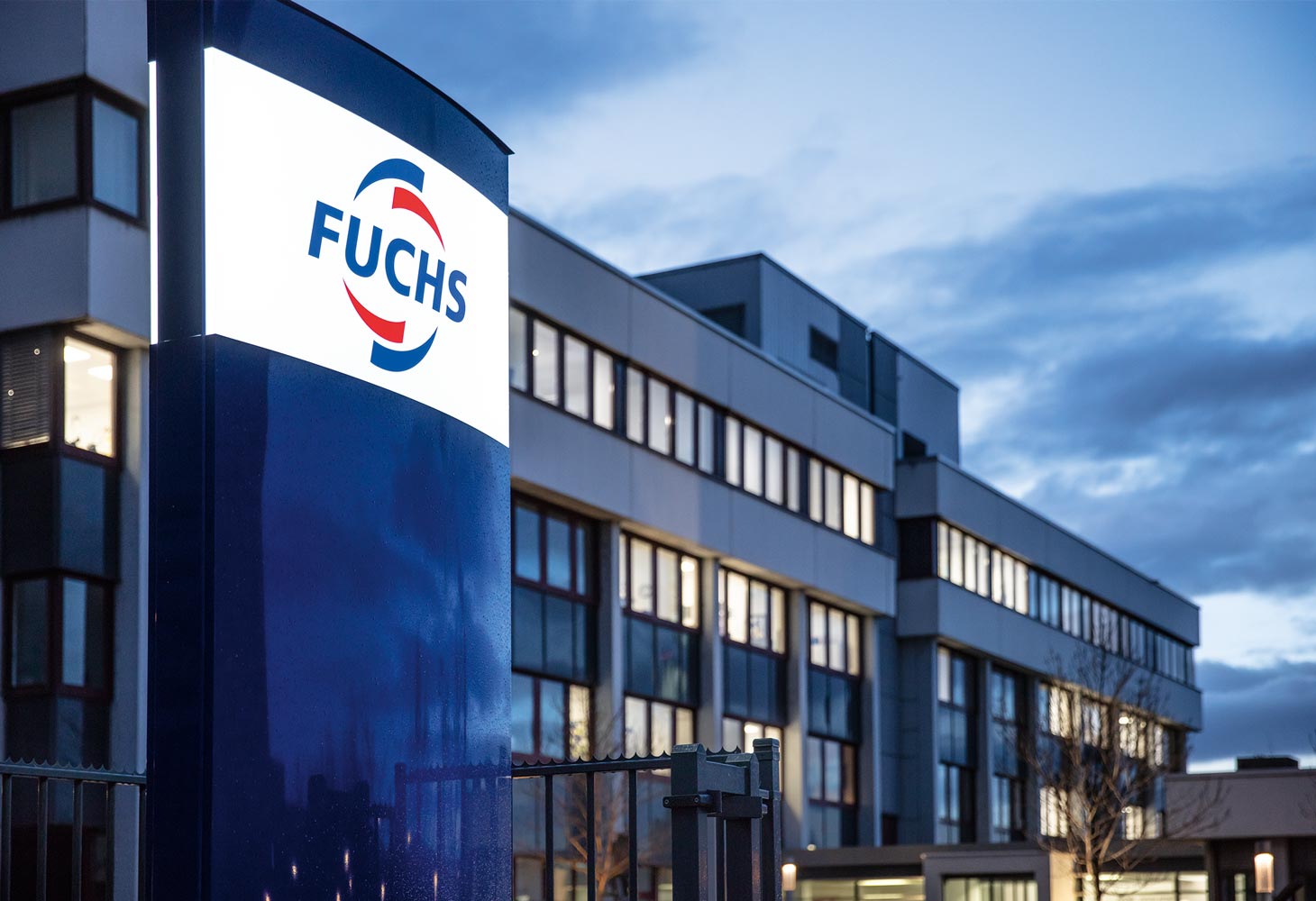
After 8% decline in 2020, Fuchs expects to recover in 2021
The world’s largest independent lubricant manufacturer Fuchs Group based in Mannheim, Germany, announced an 8% decline in full-year sales revenues year-on-year due to the impact of the global Covid-19 pandemic.
The shutdown of economic activity and the extensive lockdowns led to drastic declines in sales revenues, which took effect in the second quarter in particular. Recovery trends, which emerged in the following quarters and particularly toward the end of the year, could not compensate for the declines from spring, the company said.
Measures to cut staff costs and material costs were implemented but without making major cutbacks or jeopardizing future projects, the company said. As a result, the Group’s function costs were reduced in 2020 compared to the previous year. Moreover, positive mix, currency, and raw material cost effects led to an improved gross margin. Overall, earnings before interest and taxes (EBIT) decreased by only 3% year-on-year.
Despite the decline in earnings, free cash flow before acquisitions increased from EUR175 million (USD209 million) to EU 238 million (USD284 million) by releasing funds in net operating working capital and reducing investments in comparison to the previous year.
“2020 was a difficult year for Fuchs, too. The Covid-19 pandemic hit us hard and resulted in significant declines in sales revenues and earnings over the course of the year. However, we consequently took countermeasures and implemented specific cost-cutting actions. We can be satisfied with how we have got through the crisis and how quickly we have recovered again. In the final quarter, we even achieved the highest quarterly result in Fuchs’ history,” said Dagmar Steinert, Executive Board member and CFO at Fuchs.
Business development in the regions
The effects of the Covid-19 pandemic impacted the different regions of the world differently. Despite an 8% decline in sales revenues, the EMEA region increased its EBIT by EUR1 million (USD1.2 million). This was achieved by cost savings and non-recurring one-time effects in the previous year.
The Asia-Pacific region recovered early from the coronavirus-related sales revenue losses, posting a decline in sales revenues of just 3%. EBIT increased by 8% thanks to cost reductions and a very positive development in China.
The North and South America region, and especially the U.S., was particularly heavily impacted by the coronavirus pandemic. Sales revenues fell by 7%, while the organic sales revenue decline was much higher at 14%. There was a positive impact from external growth in sales revenues of 11%. Overall, EBIT was down 14% year-on-year.
Investment initiative mostly completed
With investments of EUR122 million (USD145 million) in 2020, Fuchs completed the investment initiative, which began in 2016. Among other things, the new plant in Sweden was completed. In China, the headquarters and the Asian research and development hub in Nanxiang near Shanghai were significantly expanded and modernized, and construction work began for the new corporate headquarters in Mannheim, Germany. Within five years, almost EUR600 million (USD717 million) were invested in property, plant and equipment and in intangible assets. With the end of the investment initiative, a permanent reduction in the investment volume to the level of depreciation and amortization is planned from 2021 onward.
Acquisitions expand specialties business
By way of acquisitions, Fuchs strategically expanded its specialties business in particular in 2020. The acquisition of Nye, a manufacturer of synthetic high-performance lubricants in the U.S., was completed in January. This company generates sales revenues of almost EUR50 million (USD59 million) at its site in Fairhaven, Massachusetts, U.S.A., which will be gradually expanded as a specialties site in North America. Other acquisitions included the specialty lubricants business of Welponer in Italy and PolySi in the US. With the joint venture in Vietnam that was concluded at the start of 2021, Fuchs has also established a good basis for future growth in this strategically important market.
Forecast for 2021
The Fuchs Group is taking the outlook for 2021 on the basis of the expected global economic development, growth in the lubricants market, and its global and broadly diversified structure. Fuchs assumes a recovery of the global economy in all regions, although this is not yet expected to reach the pre-crisis level in all of Fuchs’ industries and customer groups.
In addition, disruptions to supply chains as a result of the coronavirus pandemic still represent a burden. Sales revenues are therefore expected to achieve the pre-crisis level, i.e. sales revenues of 2019 (just under EUR2.6 billion or USD3.1 billion). With regard to earnings, the Executive Board expects to maintain the level of 2020 (EUR313 million or USD374 million). Continued consistent cost management will help compensate for the inflation-driven cost increases. By contrast, the recent sharp increase in raw material prices represents a temporary negative factor.
Investments in 2021 are expected to be at the level of depreciation and amortization at around EUR80 million (USD95.6 million). With a slight rise in cost of capital and EBIT at the level of 2020, Fuchs Value Added is expected to be at around EUR160 million (USD191 million). As a result of the reduction of existing tax liabilities and a slight increase in net operating working capital, free cash flow before acquisitions is expected to be at around EUR160 million (USD191 million).
“We expect a positive operating development in all regions in 2021. In addition, we will maintain the consequent cost management that was already successfully implemented in 2020. However, we cannot disregard the still fragile economic environment and the recently strongly increased raw material prices, which will temporarily be a burden,” said Steinert.
Important milestones achieved with Fuchs2025
Digitalization, e-mobility, globalized customer requirements – Fuchs operates in a highly dynamic world full of new challenges. Fuchs2025 is the response to the many different changes and sees these challenges as opportunities to shape the future and continue to achieve success.
“We achieved some major milestones in 2020. Based on our strengths, we have developed a strategy that builds on six strategic pillars: global strength, customer and market focus, technology leadership, operational excellence, people and organization, and sustainability. This basis of our strategy serves as guidance for our strategic actions in order to fulfill our vision for 2025. At two virtual roadshows held in 2020, to which our entire workforce had access, we were able to share our strategy, gather suggestions, and also just enjoy discussions with one another,” said Stefan Fuchs, chairman of the Executive Board at Fuchs.
In structural terms, progress was made in 2020 with regard to the alignment by market segments. This enables Fuchs to respond to its customers’ requirements in a more direct, agile, and needs-based way. In addition, the automotive aftermarket business was strengthened and the business segments were supported by a team of focused segment managers. With regard to culture, the topics of hierarchy-free communication and an open feedback culture were addressed in depth.












